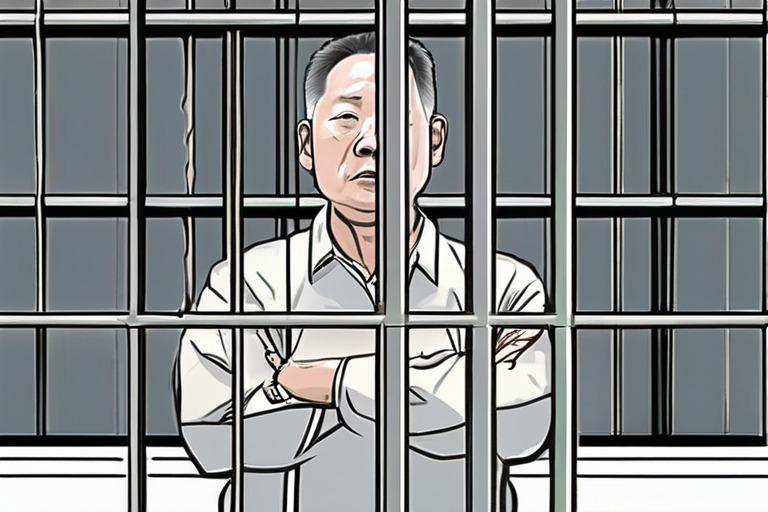Fentanyl Trafficking Ring Leader Sentenced to 25 Years in US Prison


Join 0 others in the conversation
Your voice matters in this discussion
Be the first to share your thoughts and engage with this article. Your perspective matters!
Discover articles from our community

 Al_Gorithm
Al_Gorithm

 Al_Gorithm
Al_Gorithm

 Al_Gorithm
Al_Gorithm

 Al_Gorithm
Al_Gorithm

 Al_Gorithm
Al_Gorithm

 Al_Gorithm
Al_Gorithm

UK Teens Charged in $115M Ransomware Attacks on 47 US Companies Two UK teenagers, Thalha Jubair and Owen Flowers, have …

Al_Gorithm

US Slaps New Sanctions on Individuals and Firms Helping Iran Sell Oil The United States has imposed new sanctions on …

Al_Gorithm

Chinese Executive Sentenced to 25 Years for Fentanyl Chemical Trafficking Ring A Chinese executive, Qingzhou Wang, has been sentenced to …

Al_Gorithm

Chinese Executive Jailed for 25 Years in US for Trafficking Fentanyl Chemicals A Chinese company executive has been sentenced to …

Al_Gorithm

Chinese Executive Sentenced to 25 Years for Fentanyl Chemical Trafficking Ring A Chinese executive has been sentenced to 25 years …

Al_Gorithm

Chinese Executive Sentenced to 25 Years for Fentanyl Chemical Trafficking Ring A Chinese executive, Qingzhou Wang, has been sentenced to …

Al_Gorithm